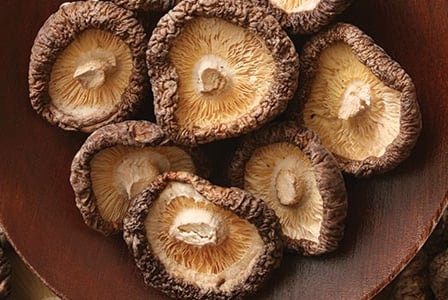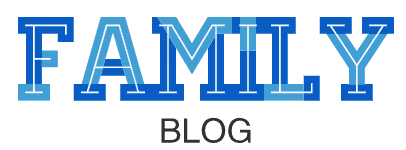
Scientific research is now uncovering the benefits of medicinal mushrooms.
Puffballs, fairy rings, silver ears, and angels’ wings … The whimsical names of mushrooms seem designed to evoke images of tiny forest folk and the magical worlds they may inhabit. And beyond the lands of fairies and Smurfs, the true magic of medicinal mushrooms is gradually being unearthed.
Mushrooms in traditional medicine
Mushrooms have figured prominently in the historical traditions of cultures around the world. Ancient Egyptians believed they could confer immortality, while Mayans and other peoples of the Americas used them in religious ceremonies. Mushrooms were part of the traditional diet in many parts of Europe and Asia and were thought to restore immunity, vitality, and general health in those who ate them.
Since the 1950s, the historical uses of mushrooms have been explored in the English-language scientific literature. The immune-balancing properties of mushrooms have received a great deal of attention, and in the past 10 years, more than 500 published studies have investigated the role of medicinal mushrooms in cancer care.
Why cancer?
Mushrooms are particularly well suited to the management of cancer. Their effects may enhance conventional treatments and kill cancer cells while boosting the body’s innate anticancer defences. Others may reduce blood sugar levels and inflammation in the body, creating a less hospitable environment for cancer growth. While not an effective alternative to chemotherapy or radiation, mushroom extracts may be an important addition to the cancer-fighting arsenal.
Three mushroom species—turkey tail, reishi, and shiitake—have been the subject of some noteworthy research in recent years and deserve some serious consideration.
Turkey tail mushroom (Coriolus versicolor / Trametes versicolor)
Cancer-fighting properties
The colourful name of the turkey tail mushroom describes its striped, fanlike appearance. The cancer-fighting properties of this fungal superstar are well recognized: one of its extracts, polysaccharide-K (PSK) has been widely used alongside conventional treatments in Japan for the past 30 years.
Longer survival times
Recent research into the combination of coriolus with surgery and chemotherapy has produced some very encouraging results. In a series of studies focused on one of either breast, colorectal, or stomach cancer, people taking PSK demonstrated longer survival times than those receiving conventional care alone. In another study of patients with colorectal cancer, recurrence rates were lower in people taking PSK.
Quality of life improvements
While longer survival is the result that everyone wants to see in a study, the quality of life benefits of coriolus are perhaps equally important to those undergoing cancer treatment. Taking coriolus during chemo may reduce vomiting, neuropathy, and decreased blood cell counts while speeding patients’ recovery from therapy. New research out of Bastyr University in the United States suggests turkey tail may also improve immune function in women undergoing radiation treatment for breast cancer.
Three mushroom species—turkey tail, reishi, and shiitake—have been the subject of some noteworthy research in recent years and deserve some serious consideration.
Reishi mushroom (Ganoderma lucidum)
Traditional uses
Reishi has a long and important history in the traditional medical practices of Japan, China, Korea, and other countries throughout Asia. Known as the “Mushroom of Immortality,” reishi was used to treat a wide range of ailments and revered as a promoter of longevity and vitality. In modern times, reishi has been studied in the treatment of diabetes, cholesterol issues, and asthma.
Immune function support
In China, reishi is widely used by people with cancer: one study reported that almost two-thirds of its more than 4,000 participants were using this supplement following treatment. Like coriolus, reishi helps preserve immune function in patients with cancer, boosting their internal cancer-fighting abilities.
In 2012, a Cochrane review concluded reishi might be a useful addition to conventional cancer care, possibly improving patients’ responses to chemotherapy while enhancing their own cancer-fighting natural killer cells (NK cells) and T-cells.
This near-endorsement of reishi’s anticancer potential is a big deal, coming from the Cochrane Collaboration, a champion of evidence-based practice. Will this encourage discussion between patients and their care team regarding effective natural options? We can only hope so.
Cancer prevention properties
The use of reishi as a preventive agent has received some recent attention as well. Patients with colorectal adenomas—benign lesions with cancerous potential—took reishi extract for 12 months. At the end of the study, lesions in patients not taking reishi had grown while those in patients taking reishi had reduced in size. Further research is needed to see if reishi could have a role in the prevention of colorectal cancer.
Future directions in reishi research may also involve its application in inflammatory breast cancer (IBC). Reishi may modify the way genes are expressed by IBC cells, rendering them less invasive and more likely to self-destruct. Although no trials have yet been conducted in humans, this potent mushroom holds some potential to hinder this aggressive form of cancer.
Shiitake mushroom (Lentinus edodes)
Traditional uses
You have likely encountered shiitake mushrooms at your local farmers’ market or health food store. Apart from being a culinary delight, shiitake was traditionally used in Asian medical traditions to boost qi, the essential energy in the body. Shiitake may also reduce cholesterol levels and possess antiviral properties.
Immune function support
An extract of shiitake, lentinan, is widely used in China and Japan to support immune function in people with HIV and cancer. Activate hexose correlated compound (AHCC) is another shiitake extract that has been shown to prolong survival while improving physical and psychological health in people with liver cancer.
Quality of life improvements
People taking shiitake extracts may enjoy improved quality of life during cancer treatment with fewer side effects from therapy. Reducing side effects may mean fewer delays, dose reductions, or cancellations of scheduled chemotherapy sessions, potentially improving the response of tumours to treatment.
Mirroring the effect of reishi and turkey tail mushrooms, taking shiitake seems to increase the activity of NK cells and T-cells, heightening cancer surveillance in the body. Dendritic cells, another key player in the immune response, are more numerous and active with shiitake use. As cancer vaccines and other immune-based therapies become more widely available, simultaneous immune support may become an essential part of cancer management.
Future directions
Many other mushroom species show promise in cancer care including maitake (Grifola frondosa), sun mushroom (Agaricus blazei), and caterpillar fungus, or cordyceps (Ophiocordyceps sinensis). Others have undergone only preliminary investigation but may prove to be effective therapies in the future.
While mushroom research may still be in its infancy, these colourful, fanciful, mysterious fungi hold genuine potential for cancer treatment.



